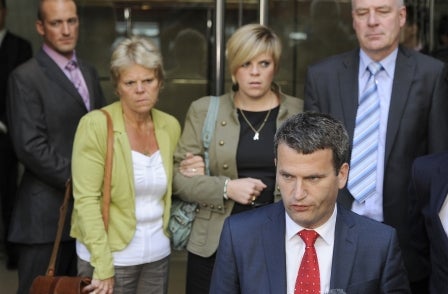
Various peace deals have collapsed over the years because of a refusal to compromise and I fear the ongoing tussle over press regulation could go the same way.
But peace is in our grasp if only publishers, MPs and the victims of past press excesses as represented by Hacked Off can move a little from their current positions.
Hacked Off got a dream deal on 18 March when the three main political parties agreed to a beefed-up Royal Charter-backed system of press regulation. The dream goes that the new regulator will be completely independent of Parliament and the press, editors will be in a minority on its code committee and it will have the ability to compel placement of front-page apologies.
It is backed up by two pieces of legislation which made their way on to the statute books last week. Under the Enterprise and Regulator Reform Act the Royal Charter, once okayed by the Privy Council, cannot be changed without a two thirds majority of both houses of Parliament. Under the Crime and Courts Act, news publishers outside the state-approved regulator will be subject to exemplary damages and increased libel and privacy case legal costs (except for a large list of exempt titles including blogs which turn over less than £2m and council-run newspapers).
For Hacked Off it is the perfect solution. Perfect except for the fact that most of the newspaper and magazine industry have now said they cannot stomach it. And without the buy-in of publishers themselves a new system of self-regulation cannot work.
Publishers have rebelled because they refuse to surrender total control over the regulator. That is no longer self-regulation as envisaged by Leveson, they say, and in any case they question why they should fund and organise what is effectively a quango.
The regional press is deeply concerned that the arbitration arm set out in the Charter will lead to “crippling” new libel claims being made against them.
And there remains a profound principled objection to a statute-backed system of regulation being imposed on publishers by the state.
Their solution is to resolutely reject the Government plan and instead offer their own Royal Charter.
The main differences between their plan and the Government one are outlined here, but in a nutshell the publishers want:
- A representative on the Recognition Panel which will licence the new regulator (and the ability to veto appointments to the board)
- An arbitration arm which is optional rather than obligatory
- No legislative underpinning but instead a system where a unanimous vote of the Recognition Panel, the regulator’s board and the various industry trade associations can agree to amend the charter.
Despite the fact that the two pieces of legislation which will underpin the new press regulation system are now law there is still time for a compromise before the Privy Council meets on 15 May to consider the two rival Royal Charter petitions.
The Newspaper Society tells me that they believe their regulator will meet the terms of the new exemplary damages regime. So it would be partly underpinned by statute.
They also say that the ‘triple-lock’ on changes to the press charter will trump the terms of the Enterprise and Regulatory Reform Act.
There is no chance that the Privy Council will unilaterally decide to favour the press Charter over the Government-backed one. The Privy Council comprises deputy prime minister Nick Clegg and three other Government ministers (plus the Queen) so it will do exactly what the Government tells it to.
But the press cannot be compelled to join a regulator which most publishers fundamentally disagree with any more than the Government can regulate any citizen’s right to express themselves as they wish (within the bounds of libel, privacy and the criminal law on contempt of court).
The two sides are not so far apart that a deal cannot be done. In my view the Government needs to give the publishers more of a stake in the new regulator and surrender legislative underpinning in favour of the publishers’ triple-lock solution.
The publishers probably need to relinquish some of their proposed veto powers on appointments and bring back the whistleblowers’ hotline, which has mysteriously been dropped from their proposal.
Most importantly we need publishers, representatives of the ‘victims’and Parliamentarians to come together to thrash out a final deal which is fair and workable.
Such a summit was proposed by PCC chairman Lord Hunt back in November last year but has never been spoken of again.
Commons media committee chair John Whittingdale MP told The Sun yesterday the new Royal Charter "delivers all the most important bits of what is needed in a new system. The industry has also made clear it will be flexible and will not stick to every last dot and comma. So we should grab this with both hands now."
There is no point in creating a perfect theoretical system of press regulation which no-one uses. The result of such a move could be that some publishers would create their own regulator taking a chance on exemplary damages rules which may, in any case, be unenforceable. Many more titles might opt to be part of no regulator at all leaving the victims of future press excesses and mistakes with nowhere to turn. This would be the worst possible outcome from a process which still has the potential to create a stronger, more ethical, basis for British journalism while ensuring there is never a repeat of the disaster at the News of the World.
Email pged@pressgazette.co.uk to point out mistakes, provide story tips or send in a letter for publication on our "Letters Page" blog
